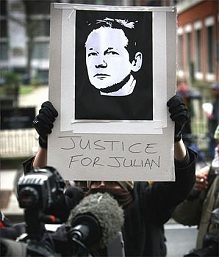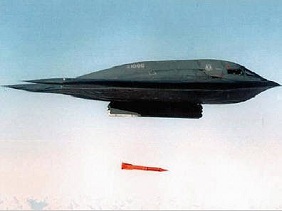Julian Assange and the defense of democratic rights

Julian Assange must be vigorously defended. The World Socialist Web Site calls on all working people—and all those seeking to oppose imperialism and the attack on democratic rights—to mobilize their collective strength to demand an immediate end to the persecution of Assange and WikiLeaks.
Over the past several months, WikiLeaks founder Julian Assange has been the target of a state-orchestrated campaign based on trumped-up allegations of sexual misconduct. He was named in an international arrest warrant, detained in a London prison, initially denied bail and held in isolation for nine days. Assange’s lawyers are fighting extradition to Sweden while he remains under virtual house arrest.
The extradition of Assange to Sweden could be followed by his extradition to the US. There are reports of discussions between the American and Swedish governments, and a grand jury has purportedly been convened in Virginia to charge Assange with violations of the US Espionage Act. Government officials and politicians have branded Assange a “terrorist.” Some have called for his assassination.
The vendetta against Assange is a political provocation that has all the characteristics of a dirty tricks operation.
The exploitation of charges of sexual and personal misconduct as a cover for a political attack is a well-known modus operandi. Those who might be sufficiently gullible to take the charges in Sweden at face value should recall previous cases: the FBI’s taping of bedrooms and hotel rooms used by Martin Luther King, Jr. to obtain evidence of extramarital affairs; Nixon’s break-in at the office of Daniel Ellsberg’s therapist in search of personal information damaging to the leaker of the Pentagon Papers; more recently, the use of the Monica Lewinsky scandal by the Republican Party and its media backers in the rightwing conspiracy to drive President Bill Clinton from office.


























